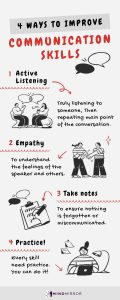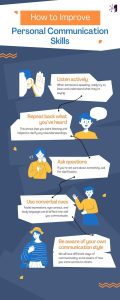Public speaking skills are essential for students in today’s world. Being able to effectively communicate in front of an audience is a valuable skill that can help students in a variety of ways, from performing well in school to advancing in their future careers. In this blog, we will explore the importance of public speaking skills for students and why it is a valuable skill to develop. From building confidence and improving communication skills to preparing for the future and developing leadership qualities, the benefits of public speaking are numerous. Whether a student is shy or outgoing, developing strong public speaking skills can help them succeed in a variety of situations. Read on to discover why public speaking skills are so important for students.
What Are Speaking Skills?
Speaking skills refer to the ability to communicate effectively through speaking. This is an important life skill that is necessary for both personal and professional situations. Effective speaking skills include the following:
- Clear pronunciation: speaking clearly and distinctly to ensure that your message is understood by your audience.
- Appropriate pacing: controlling the speed and rhythm of your speech to make your message more engaging and effective.
- Tone: using a tone that is appropriate for the situation, audience, and message you are trying to convey.
- Body language: using non-verbal cues such as gestures, facial expressions, and posture to reinforce your message and engage your audience.
- Audience Engagement: making eye contact, asking questions, and using humor to keep your audience interested and involved in your message.
- Effectiveness: using effective storytelling techniques, using persuasive language, and making a clear point that resonates with your audience.
- Confidence: speaking with confidence and avoiding filler words such as “um” and “ah” to make a more professional and impactful impression.
- Adaptability: being able to adjust your speaking style to different situations, audiences, and environments.
- Preparation: preparing in advance for your speech by researching the topic, organizing your thoughts, and practicing your delivery.
- Listening skills: being an active listener and responding to the needs and interests of your audience to build rapport and increase their engagement.
Improving speaking skills requires consistent practice, feedback, and self-reflection. Whether you are giving a presentation at work, making a speech at a wedding, or simply having a conversation with someone, developing strong speaking skills is essential for effective communication.
Also Read:
Importance of Public Speaking Skills for Students
Public speaking is an essential skill that every student should learn and master. It plays a crucial role in building confidence, developing critical thinking, and improving communication skills. In this blog, we will explore the importance of public speaking skills for students and why it is essential to invest time and effort into mastering this skill.
Building Confidence:
Public speaking helps students build confidence and develop a sense of self-assuredness. It enables them to overcome their fear of speaking in front of others and increases their confidence in expressing their thoughts and opinions.
Improving Communication Skills:
Public speaking helps students improve their communication skills. They learn to articulate their thoughts and ideas clearly and concisely and develop the ability to communicate effectively with others.
Developing Critical Thinking:
Public speaking requires students to analyze, evaluate, and organize their thoughts and ideas. It helps them develop critical thinking skills and improves their ability to make informed decisions.
Enhancing Presentation Skills:
Public speaking helps students develop strong presentation skills. They learn how to create engaging and informative presentations that can effectively communicate their message to their audience.
Networking Opportunities:
Public speaking provides students with the opportunity to network and connect with others. They can showcase their skills and gain exposure to new opportunities and career paths.
Preparing for the Future:
Public speaking skills are highly valued in the workplace, and mastering these skills can provide students with a competitive advantage when entering the workforce. It can also help them prepare for leadership roles in the future.
Improving Problem-Solving Skills:
Public speaking requires students to think on their feet and respond to unexpected questions or challenges. This helps them improve their problem-solving skills and become more adaptable in challenging situations.
Encourages Creativity:
Public speaking allows students to showcase their creativity and imagination. They learn to use storytelling, humor, and visual aids to make their presentations more engaging and memorable.
Developing Leadership Qualities:
Public speaking helps students develop important leadership qualities such as communication, decision-making, and interpersonal skills. These skills are essential for success in a leadership role, whether in the workplace or in community organizations.
Boosting Self-Esteem:
Finally, public speaking can boost students’ self-esteem and sense of self-worth. By successfully speaking in front of an audience, students can feel more confident and proud of themselves.
In conclusion, public speaking skills are critical for students in today’s world. They provide students with a range of benefits, including building confidence, improving communication skills, developing critical thinking, enhancing presentation skills, providing networking opportunities, preparing for the future, improving problem-solving skills, encouraging creativity, developing leadership qualities, and boosting self-esteem. Investing time and effort into mastering this skill can have a positive impact on a student’s future success and happiness.
Improving Children’s Communication Skills
Communication skills are essential for success in all areas of life. Children who develop strong communication skills are more likely to be successful in school, relationships, and their future careers. In this blog, we will explore ways to improve children’s communication skills.
Encourage Active Listening:
Active listening is an important aspect of effective communication. Encourage children to practice active listening by asking them to repeat back what they have heard and ask clarifying questions.
Promote Conversation:
Create opportunities for children to engage in conversation. Encourage them to ask questions and express their thoughts and opinions. This helps them develop their verbal communication skills.
Read Together:
Reading together is a great way to improve children’s communication skills. Reading helps develop vocabulary, comprehension, and critical thinking skills, all of which are essential for effective communication.
Play Pretend:
Playing pretend is a fun way to encourage children to use their imagination and improve their communication skills. Children can act out different scenarios, role-play, and practice expressing their thoughts and emotions.
Use Technology Wisely:
Technology can be a great tool for improving children’s communication skills. Encourage them to use technology, such as video conferencing, to communicate with others and practice their speaking and listening skills.
Provide Opportunities for Public Speaking:
Public speaking is a great way to build children’s confidence and improve their communication skills. Encourage them to participate in school presentations, debate teams, or other public speaking opportunities.
Lead by Example:
As a parent or teacher, leading by example is the best way to encourage children to improve their communication skills. Model effective communication skills, such as active listening and clear speaking, and encourage children to follow your lead.

Types Of Speaking Skills
There are several types of speaking skills, including:
- Presentation skills: The ability to present information effectively, using visual aids, gestures, and clear speaking to engage the audience.
- Verbal communication skills: The ability to express thoughts and ideas effectively through spoken words, including active listening, effective use of nonverbal communication, and clear pronunciation and enunciation.
- Interpersonal communication skills: The ability to effectively communicate and interact with others, including active listening, empathy, and the ability to effectively handle conflicts and negotiations.
- Public speaking skills: The ability to speak in front of large groups of people, engaging the audience with confidence, poise, and clarity.
- Storytelling skills: The ability to engage an audience by telling stories, using storytelling techniques, such as humor, suspense, and vivid detail, to captivate the audience and convey a message.
- Impromptu speaking skills: The ability to speak extemporaneously, without preparation, in response to a question or situation.
- Debate skills: The ability to effectively argue and defend a position, using logic, evidence, and persuasive techniques to influence others.
- Sales skills: The ability to effectively communicate the benefits and value of a product or service to potential customers, using persuasive techniques and strong verbal communication skills.
Overall, speaking skills are a combination of verbal, nonverbal, and interpersonal communication skills that enable an individual to effectively express themselves and interact with others.
Benefits of Speaking Skills
Speaking skills are a fundamental aspect of communication, and they play a crucial role in our daily lives, both personally and professionally. Good speaking skills are not only beneficial for personal growth and development but also for success in the workplace and in social situations. In this blog, we’ll explore the benefits of speaking skills and why they are essential for everyone to develop.
Improved Self-Confidence:
One of the most significant benefits of speaking skills is that they can help individuals feel more confident in social and professional situations, increasing their self-esteem and ability to express themselves effectively. Confidence in speaking can lead to better communication, more opportunities for leadership, and a stronger presence in both personal and professional life.
Better Career Opportunities:
Having good speaking skills can give individuals a competitive edge in their careers, making them stand out from their peers. Speaking skills can help individuals in job interviews, negotiations, presentations, and other professional situations. Good speaking skills can also lead to new opportunities for career advancement and personal growth.
Stronger Relationships:
Effective speaking skills can help individuals build and maintain strong relationships, both professionally and personally. Good speaking skills allow individuals to communicate their thoughts and feelings effectively, reducing misunderstandings and conflicts. Effective communication skills can also help individuals build trust and deepen relationships.
Improved listening Skills:
Speaking skills also involve active listening, which is an essential aspect of effective communication. By improving speaking skills, individuals also improve their listening skills, leading to better understanding and more meaningful conversations.
Increased Creativity:
Speaking skills can help individuals develop their creative abilities by encouraging them to think outside the box, explore new ideas, and express their thoughts and feelings in unique ways.

How to Develop Confidence in Public Speaking
Public speaking is a common fear for many people, but it is a crucial skill to have in both personal and professional life. Whether you are giving a presentation at work, making a speech at a wedding, or simply leading a group discussion, having confidence in public speaking can help you communicate effectively and achieve your goals. In this blog, we’ll explore how to develop confidence in public speaking and overcome the fear of speaking in front of others.
Preparation:
One of the most important steps in developing confidence in public speaking is preparation. Research the topic thoroughly, organize your thoughts and practice your delivery. This will help you feel more confident and in control during the actual speech.
Positive Mindset:
Having a positive mindset is crucial in developing confidence in public speaking. Focus on your strengths, use positive self-talk, and adopt confident body language. Accept that mistakes will happen, and don’t let them define you. Instead, use them as learning opportunities to improve.
Visualization:
A visualization is a powerful tool that can help you overcome the fear of public speaking. Before the speech, close your eyes and visualize yourself delivering the speech with confidence and success. This will help you build a positive image in your mind and increase your confidence.
Feedback:
Seeking feedback after your speech can help you identify areas for improvement and increase your confidence. Ask friends, family, or colleagues for constructive feedback and use it to refine your speaking skills.
Address Fear:
For some individuals, the fear of public speaking can be debilitating. If this is the case, consider seeking the help of a therapist or coach to address and overcome your fear. They can help you develop strategies for managing anxiety and build confidence in public speaking.
Practice:
Practice is crucial in developing confidence in public speaking. The more you practice, the more comfortable and confident you will become. Start with small, low-stakes speaking opportunities, and gradually work your way up to larger and more challenging speeches.
Know your audience:
Knowing your audience is key in public speaking. Understanding their needs, interests, and expectations will help you tailor your speech and deliver a more impactful message.
Engage with your audience:
Engaging with your audience can help you build a connection and increase your confidence in public speaking. Use eye contact, body language, and humor to connect with your audience and keep their attention.
Use props:
Using props, such as slides, handouts, or props, can help you keep your audience engaged and increase your confidence.
Focus On The Message:
Finally, focus on the message, not yourself. Remember why you are speaking, what you hope to achieve, and why your message is important. This will help you stay focused and confident, even if you are nervous.
In conclusion, confidence in public speaking is a critical skill that can be developed through preparation, positive thinking, visualization, feedback, addressing fear, practice, knowing your audience, engagement, using props, and focusing on the message. By focusing on these areas and practicing regularly, you can overcome the fear of public speaking and develop the confidence you need to communicate effectively and achieve your goals.
Take Away
The importance of public speaking skills for students cannot be overstated. From improving communication skills and building confidence, to preparing for the future and developing leadership qualities, the benefits of public speaking are numerous. Whether a student is shy or outgoing, developing strong public speaking skills is a valuable investment in their future success. Encouraging students to participate in public speaking opportunities, from school presentations to debate teams, can help them develop these skills and build their confidence.




